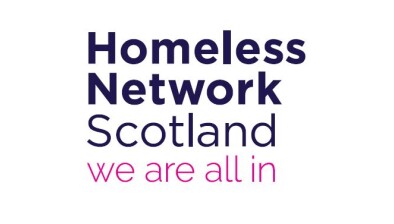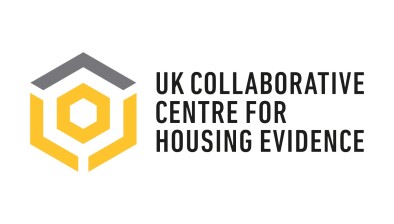Ashleigh Simpson: Crisis’ new report on impact of COVID-19 on people facing homelessness

Ashleigh Simpson
Ashleigh Simpson outlines the key findings from Scotland contained in a new report from Crisis looking at the impact of COVID-19 on people facing homelessness and service provision.
Today Crisis publishes research that sheds light on the frontline response to the pandemic. Extraordinary action was taken from March onwards to protect people who had been rough sleeping. Our report highlights the ongoing pressures on governments across GB, local authorities and the voluntary sector and the demands on the system as businesses and livelihoods are impacted and many people find themselves newly homeless.
With the Scottish Government committed to ending homeless, the research gives insight into the opportunities and challenges it may face in realising this ambition. In addition, it provides us with some pointers as to where we need to focus our attention in Scotland, as well as being mindful of the impact of UK Government policies on welfare and the support offered to non-UK nationals.
Our research survey, alongside in-depth interviews with local authorities and frontline services, found matching trends across all nations. The pandemic pushed people who were at a ‘cliff edge’ into homelessness, leading to a surge in need for support since March. Most were previously experiencing ‘hidden homelessness,’ such as sofa surfing at friends’ houses. At the same time, rising job losses, relationship breakdowns and domestic abuse also contributed to increasing levels of homelessness across Great Britain.
Some of our findings are unique to Scotland. We were already in a stronger position going into the pandemic with clear legislation entitling a much wider range of people to assistance and accommodation than in other nations. More recently, there’s been a concerted effort from the Scottish Government and local authorities to ensure that people are not left stuck in temporary accommodation for a long time. This is known as ‘rapid rehousing’ and it meant that across Scotland, pathways were already in place to help those in temporary accommodation to move on into a settled home and rebuild their lives.
Interviews with local authorities also highlighted that from March onwards there was a clear steer from the Scottish Government that everyone should be offered support into self-contained accommodation, regardless of their immigration status. This was considered the moral and right thing to do. Local authorities knew what needed to happen and for how long and were assured of the funding needed to deliver it.
In England poor communication from the government led to anxiety and confusion around what LAs needed to deliver, in contrast to the Scottish Government’s leadership and clearer communication which made a difference on the ground. This shows the importance of continued clear communication from the Scottish Government over the months ahead.
The Scottish Government also took longer term action to suspend eviction notices, more security to people facing financial hardship, and this helped to ease pressure on LAs. We also know that during the emergency response, partnership working greatly improved and services acted quickly in a more joined up way.
Over 14,000 households in Scotland are now in temporary accommodation, by far the highest level ever seen. This is of course much preferable to people being on the streets – but some of this accommodation is not fit for purpose. Temporary accommodation such as hotels and B&Bs aren’t homes and staying in them for long periods of time has a negative impact on people’s wellbeing.
The challenge for the Scottish Government and local authorities will be to provide housing options to allow people stuck in temporary accommodation to find a home as quickly as possible, while giving people a sense of choice and control. This means investing in more social housing and Housing First in the right locations, but also maximising housing options within the private rented sector (PRS). We need to see every local authority develop a PRS access service, to ensure that people who choose tenancies are supported to find somewhere suitable and affordable.
Two more strong themes emerged in our research findings - the need for a welfare safety-net for those who have lost jobs, and the impact of the pandemic on non-UK nationals. The huge impact on industries like agriculture and hospitality has left many European nationals without employment - which is particularly worrying for those with no recourse to public funds. Local authorities across Scotland have been providing these households with accommodation when needed during the pandemic, but we don’t know how long this support can be provided for. We need the UK Government to lift these barriers to support for non-UK nationals.
One of the most encouraging themes in the report was the emphasis on stronger collaboration with partners to assist people facing homelessness. People told us this was able to happen much more quickly and effectively than before, even under the strains of the pandemic. If we can learn the lessons here and continue such positive practice going forward, this could have major benefits for both individuals and services.
If we really want to end homelessness, we need to do more to prevent it in the first place. An economic recession and rising numbers of people facing financial difficulties mean prevention is much more important than ever before. Here Scotland has fallen behind the curve as, unlike England and Wales, it lacks clear legal requirements to prevent homelessness.
Prevention activity should start much earlier and be a shared responsibility across public services so that people only experience homelessness when all other options have failed. With recommendations for new legislation being published by the independent Prevention Review Group in the coming months, we hope that a commitment from across the political spectrum to prioritising this legislation in the next Parliament will ensure all public services play their part to help people stay in their homes and avoid the indignity of homelessness.
- Ashleigh Simpson is head of policy and communications - Scotland at Crisis







